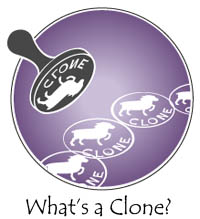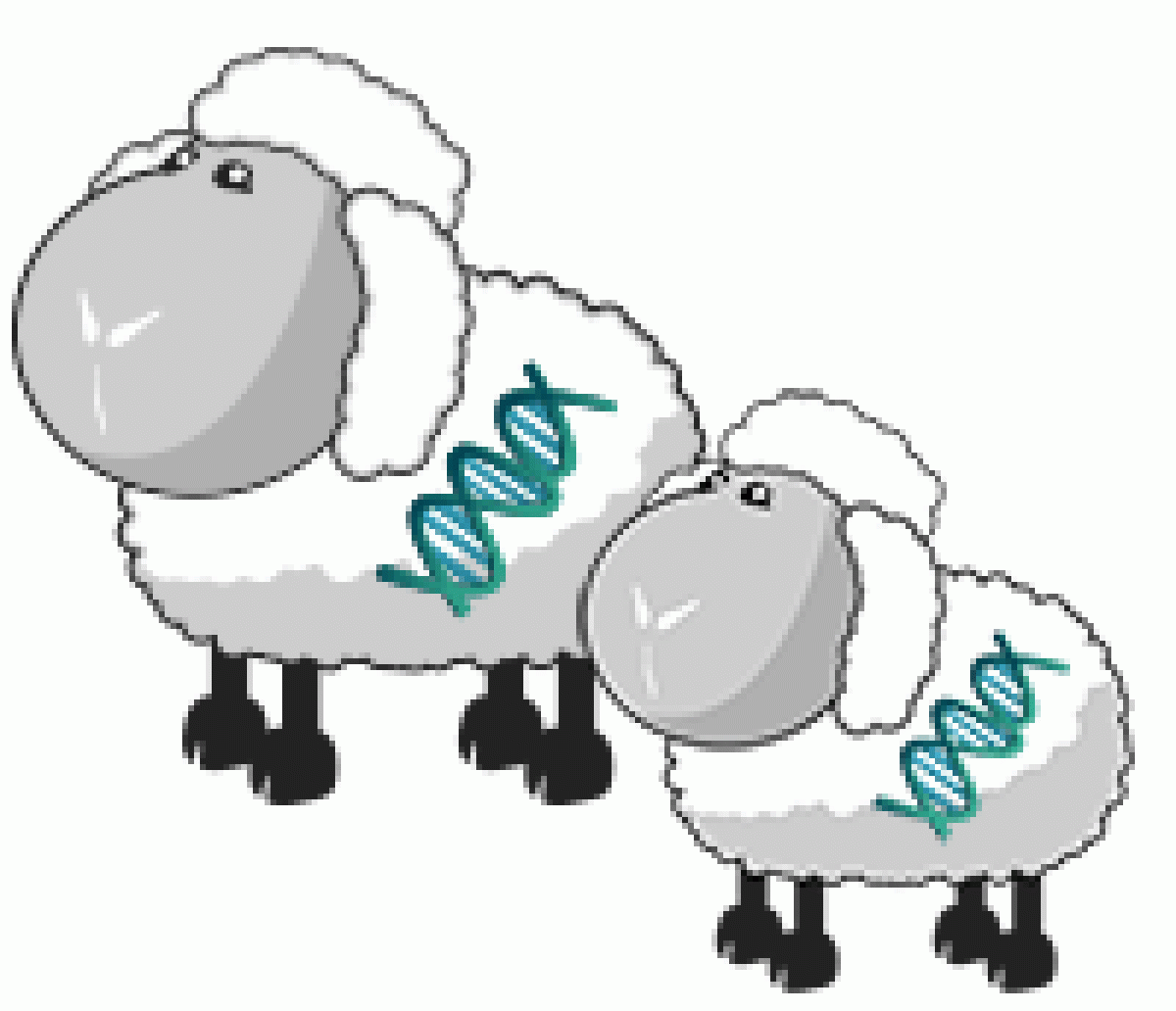What Makes a Clone a Clone?
We just learned that a clone is someone who shares your DNA, like identical twins. What's the big deal then? If we have clones running around, going to school, playing with other kids like you, why is cloning making the evening news? Cloning is such a big deal because of two reasons. Reason number one is that we can do it outside of the mother. Reason number two is that we can put DNA from wherever we want to take it from and put it into another cell.

About thirty years ago, a technology was developed that helped women have babies. This technology is called in vitro fertilization (IVF.) It uses very small instruments to hold an egg in place, while a sperm is inserted into it. This process is repeated for several eggs. These eggs are kept frozen until the mother is ready. When the mother is ready, the cells are placed in her to start dividing and make an embryo.
Scientists thought that the technology could be used to remove a nucleus from a mother's egg and replace it with the nucleus from another cell. This would mean that the egg would not need sperm because the nucleus would be replaced with the nucleus of a somatic cell. Remember that a somatic cell has all the genetic material it needs to live. A gamete has only half the amount of genetic material. Scientists thought that egg cells were the right type of cell because they were young and fresh. They were correct.
Read more about: Cloning Ewe
Bibliographic details:
- Article: What's a Clone?
- Author(s): Dr. Biology
- Publisher: Arizona State University School of Life Sciences Ask A Biologist
- Site name: ASU - Ask A Biologist
- Date published:
- Date accessed:
- Link: https://askabiologist.asu.edu/content/whats-clone
APA Style
Dr. Biology. (). What's a Clone?. ASU - Ask A Biologist. Retrieved from https://askabiologist.asu.edu/content/whats-clone
Chicago Manual of Style
Dr. Biology. "What's a Clone?". ASU - Ask A Biologist. . https://askabiologist.asu.edu/content/whats-clone
Dr. Biology. "What's a Clone?". ASU - Ask A Biologist. . ASU - Ask A Biologist, Web. https://askabiologist.asu.edu/content/whats-clone
MLA 2017 Style

Be Part of
Ask A Biologist
By volunteering, or simply sending us feedback on the site. Scientists, teachers, writers, illustrators, and translators are all important to the program. If you are interested in helping with the website we have a Volunteers page to get the process started.

